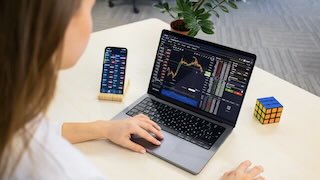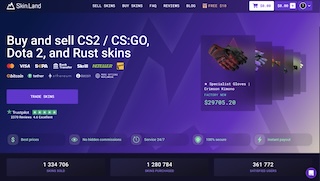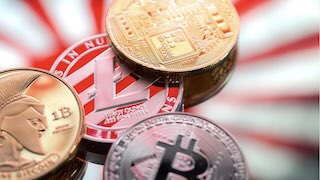TOKYO, Nov 20 (News On Japan) - Apple’s position in the global race for artificial intelligence is increasingly in focus as questions continue to surface over whether the company has fallen behind Google and Microsoft, and how it compares with Nvidia, now one of the world’s most powerful semiconductor makers.
Speaking from in front of Apple’s headquarters in Silicon Valley on a recent program, Nikkei Business reporter Sho Shima and TV Tokyo WBS correspondent Shinsaku Toyoshima discussed the strategies driving the major U.S. tech companies.
Asked whether Apple is truly lagging in AI, Shima said he does not believe the company is significantly behind. While Apple’s devices may appear slower to integrate new AI features compared with Google’s smartphones, he said its overall strategy is different. Although Apple accounts for about 30 percent of the global smartphone and OS market—compared with Google’s roughly 70 percent share through Android—Apple effectively dominates the premium segment, where high-priced devices such as the iPhone Pro series are overwhelmingly preferred.
Shima argued that Apple’s core advantage lies in its exceptionally strong user base and brand power, which allow the company to avoid rushing to adopt every new technology. Even if Google introduces new AI features, he said, Apple customers—particularly in Japan—are unlikely to switch immediately. Because Apple can afford to wait and observe its rivals’ moves, the company only needs to adopt new features once they prove to be truly essential.
He added that while delays are often pointed out, the broader AI market still lacks a definitive “killer app” for smartphones. As a result, Apple’s slower pace does not yet affect its competitiveness.
Apple Intelligence, the company’s first major AI service, began rolling out in April, but only on the latest iPhone models and high-performance devices. Shima believes the main purpose is to encourage upgrades from older smartphones rather than to deliver groundbreaking AI features. He noted that many of the functions already exist in Google’s smartphones and that neither consumers in San Francisco nor users globally appear to consider such features essential. For most people, he said, ChatGPT is still sufficient.
Shima said that from a consumer perspective, the true AI competition has not yet begun. The differences between companies lie in how and where they deploy AI agents—systems that can perform tasks such as sending emails, taking photos, or making reservations at the user’s request. Apple holds a major advantage because it controls both the smartphone and PC operating systems—iOS and macOS—allowing it to integrate agentic AI deeply into its devices.
Microsoft, by contrast, only controls the PC OS and must rely on apps such as Word, Teams, and PowerPoint for AI integration. Google largely depends on its browser, Chrome, as a platform. Because Apple owns both devices and semiconductors, Shima said, its long-term potential is “extremely strong,” and it may ultimately become the most dominant player in consumer-facing AI.
Google, he added, faces the greatest challenge. AI-powered search reduces the number of ad displays, and as AI tools replace traditional search, Google must invent new ways to show advertisements. Its low-cost hardware business is ultimately built to support search-driven advertising, meaning the company must overhaul its entire business model to survive the AI transition. Despite this, Google employees often tell him that this high-pressure environment is motivating rather than discouraging, reflecting Silicon Valley’s culture of embracing crisis as an opportunity.
Shima noted that if hardware again becomes central to technological competition—as it potentially could in the AI era—Japan may find new opportunities. With semiconductors expected to grow increasingly important, the question will be how Japan can regain competitiveness in chip-related fields.
The discussion then shifted to Nvidia—a company Shima has extensively covered and the subject of his books ‘NVIDIA Deep Dive’ and ‘The True Winners of Generative AI.’ Nvidia recently surpassed Apple in market capitalization and briefly became the world’s most valuable company. Shima explained that beyond its technological dominance, Nvidia’s management structure is extraordinarily unconventional.
Founder Jensen Huang, who emigrated from Taiwan before later creating Nvidia, manages what is essentially a flat organization. Beneath him are about 60 top executives—a number far beyond the typical management theory maximum of around a dozen. To make such a structure work, Huang prohibits one-on-one meetings with these executives, insisting that information be shared transparently with all members at once.
Japanese companies often rely on behind-the-scenes consensus building, but Shima said Nvidia intentionally eliminates such practices. Instead of regular monthly reports, every employee submits a weekly “Top Five Things” email listing, in brief bullet points, their five most important concerns or tasks. These emails are sent to all senior leaders, including Huang, who only reads what fits on a single screen and does not scroll. He then uses keyword searches—for example, “Apple Intelligence”—to instantly grasp company-wide sentiment and emerging issues.
Shima said this approach allows Nvidia to gather information rapidly and maintain organizational agility, despite its flat hierarchy. Some executives adopt Huang’s management style directly, while others adapt it based on their own abilities, but the company’s emphasis on transparency and speed is universal.
As the conversation turned back to the global AI race, Shima said that the decades-long dominance of software platforms may now be giving way to a renewed era in which hardware matters again. With Apple controlling both hardware and software, and Nvidia reshaping the semiconductor landscape, the competitive dynamics among major technology companies could shift dramatically in the coming years.
Source: テレ東BIZ















